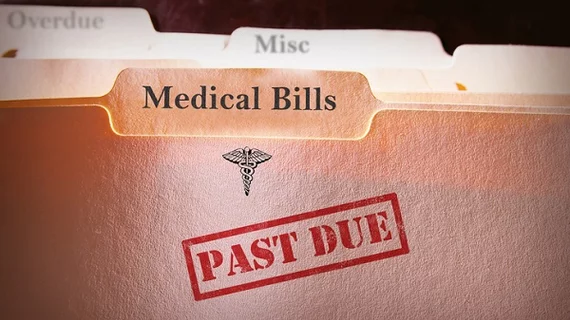Surprise-billing legislation took away Envision Healthcare’s ‘secret sauce,’ health economist says
Legislation to rein in surprise medical billing took away radiology provider Envision Healthcare’s “secret sauce,” a prominent healthcare economist said recently.
Eileen Appelbaum, PhD, spoke June 15 during the Take Back Medicine summit, focused on the theme of “reclaiming medicine from corporate interests.” She noted how, after private equity firm KKR acquired the Nashville-based multispecialty group in 2018, Envision adopted “aggressive” tactics to drive up collections, MedPage reported.
“The secret sauce was basically having doctors out-of-network, and then delivering surprise medical bills to families who had shown up at an emergency room, loading them up with medical debt,” Appelbaum, who is co-director of the Center for Economic and Policy Research, said at the summit.
The No Surprises Act officially went into effect on Jan. 1, 2022, but before then, creditors already could see Envision would likely struggle to pay back its massive debts. This eventually led to Envision filing for chapter 11 bankruptcy protection in May, hoping to wipe out $5.6 billion in obligations. KKR and its partners had put $3.5 billion into acquiring Envision, but walked away with just $300 million, Appelbaum estimated.
“They made lots of money in the meantime, right, with all those surprise medical bills,” she said. "Obviously they pay down some of the debt. They paid themselves very handsomely. They pocketed a lot of the money along the way, but the idea that they were going to sell this and make a lot more money, that got washed out.”
Read the rest from MedPage Today at the link below.

